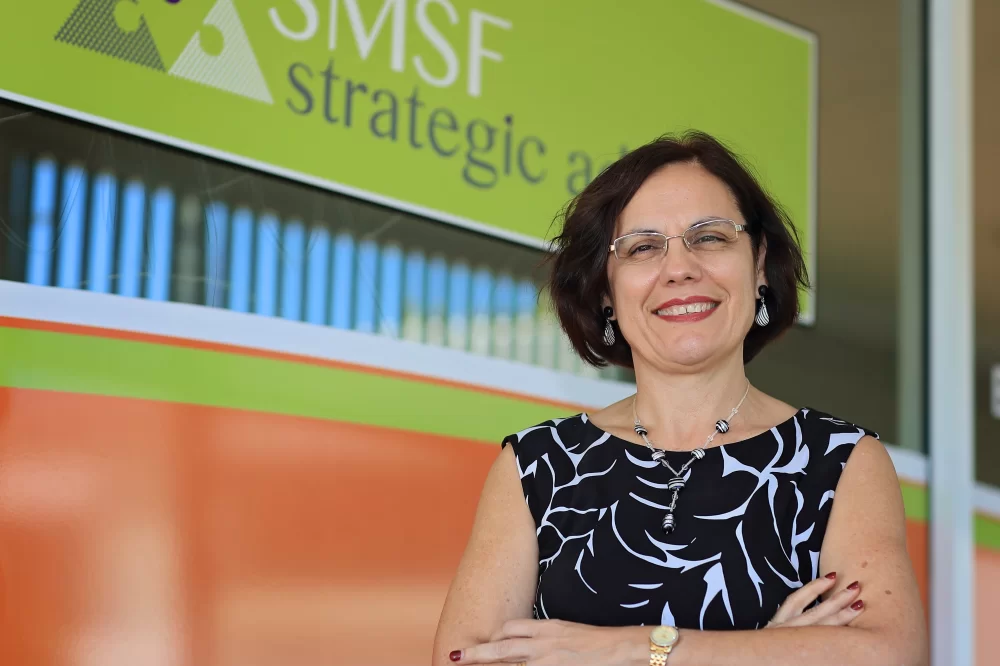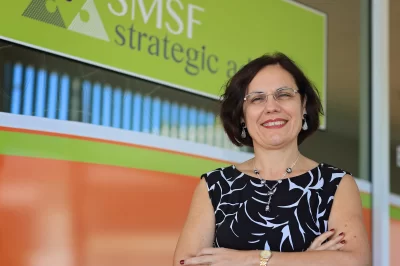Small business in regional Australia

A small business is defined as a business that has an annual sales turnover (excluding GST) of less than $2 million and in Australia, small businesses are really the backbone of our economy.
Small businesses account for 33% of Australia’s Gross Domestic Product, employ over 40% of Australia’s workforce, and we pay around 12% of total company tax revenue and women are becoming increasingly significant in small businesses due to the flexibility of working from home and thanks to the internet/NBN ability to work remotely and outside the “normal” business hours.
Many of the clients I have worked with have had a turnover of less than $1m and some would qualify to be called nano or micro-businesses as their turnover is less than $75,000.
The size of the turnover does not matter; the issues I have found concerning a client’s retirement planning are the same for everyone. Most of them are not putting any savings away for their retirement and as far as they are concerned their business is their superannuation.
When they realise that may not prove to be the case and they start saving for their retirement, they all wish they had started sooner and wondered why someone had not told them earlier what to do.
Regional Australia adapts and diversifies to success
Many small businesses have adapted during the pandemic and started to diversify their sales channels, taking their businesses online, developing new programs or products which previously they may not have considered.
Being in Cairns where a lot of the businesses rely on the backpacker market travelling through has made a big impact on tourism (Waiters, cleaners and tour guides) and also the agricultural industry in not having enough staff to work (fruit picking and packing in particular).
The struggle to find staff has meant many have either reduced their hours of operation or had to adapt to the services they can offer.
The noticeable difference in small businesses in regional areas is the availability of government resources, programs and funding. Having said that I believe most small business owners are resilient and adapt to make the most of their circumstances and just get on with the job to get done what they need.
Small business and superannuation contributions
Many small business owners don’t contribute or even look at their superannuation at all. If they are a sole trader, in partnership or family trust and do not take a wage many of them think they are “clever” as they don’t need to pay the 10% into their super.
The impact of ignoring this for 5, 10 or 15 years is huge on their retirement in the future.
With superannuation being so important for someone's future it is a shame that many are still missing out as the ASFO statistics show.
Education is the key to this change and encouraging my clients, even if they are applying a low income, just contribute $20 per week and take advantage of the co-contribution with the government contributing $500 to their super fund if their assessable income is below $39,000.
Even just doing $100 per month or per fortnight and starting small is better than nothing being contributed.
When a client starts a new business, I try and encourage them to contribute 10% of their drawings to superannuation – it doesn’t need to be a wage. They are often happy at tax time to find they now have a much-needed tax deduction.
Weekly updates on business sales and advice, delivered to your inbox. Sign up to Newsletter
Small businesses in the regions need to be hardened for another tough year
Starting the year with Omnicron left a lot of business owners deflated when they were just ready to roll and get the business going after all the lockdowns and borders being shut; to then have the brakes applied again.
Now there is hesitation with the Ukraine/Russian conflict and who knows when or if it will be resolved.
With petrol prices on the rise, the cost of everything will rise especially in the regions, so managing budgets and pricing for your products and services will be difficult.
The recent natural disasters have to be taking a toll mentally on people in those communities who have been affected twice in a 12 month to 18 month period.
There are only so many times you can get knocked down and keep bouncing back financially and mentally.
Hopefully, the famous Aussie country spirit will be on full show for all of us that pull through and flourish during 2022.
Some easily prevented common mistakes small business owners make:
- Not separating their personal bank account from their business bank account. You should always pay yourself a wage and pay superannuation on that income.
- Not paying into superannuation in the initial years of the business operating.
- Forgetting to take the profit out of the business to keep reinvesting into the business.
I love the book Profit First written by Mike Michalowicz where he turns upside down your thinking on how to read a profit and loss statement and teaches you to manage your cash flow.
Before buying a business in regional Australia
Do your market research and go visit the area and make sure it is something you will enjoy.
Living in a regional area is fantastic for the community to feel but for some people, it may not be the lifestyle they want or are expecting for them and their families.
You will need to give it time to build your brand and get recognition and acceptance in the community.
Buying into a regional small business with the aim of a quick flip in a year or two is a very hard road to success.
Persevere and get involved in your local community clubs like Rotary, sporting clubs and chambers of commerce so you can help grow credibility and trust in the community you are there for the long term and for the right reasons.
Tags: small business selling success entrepreneurs
About the author










